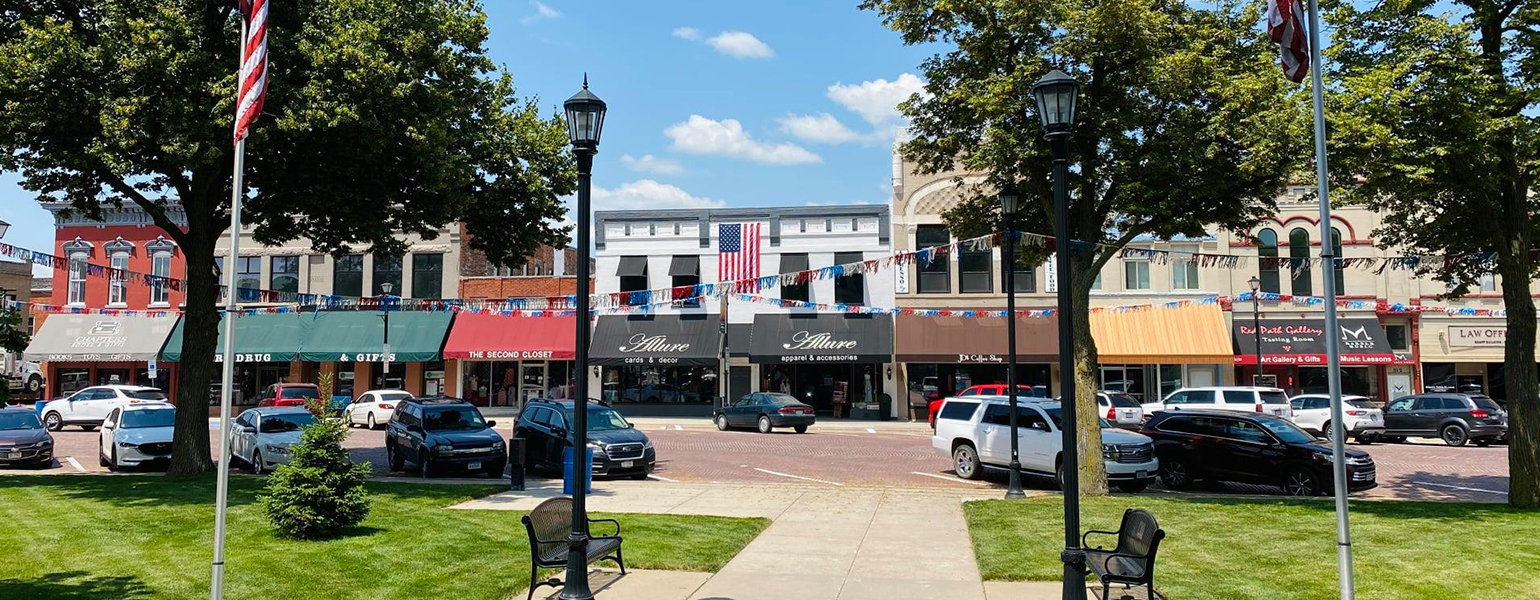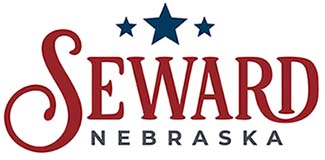Funding Programs

Tax Increment Financing
Tax Increment Financing, or TIF, is a tool to assist in financing redevelopment projects in designated blighted and substandard areas of the city. The City of Seward issues bonds or a promissory note to finance any approved public improvements associated with a redevelopment project. The property taxes generated from the increased valuation of the development are then captured for a period of up to 15 years to repay the public investment.
The purpose of TIF is to help communities undertake redevelopment activities for urban renewal and municipal growth. TIF allows a city to pay for the public improvements that are part of a private redevelopment project. TIF is not a grant and it is not a primary funding source for a redevelopment project, but does provide an incentive for private development that will increase the tax base of the Seward community and create additional jobs.
City of Seward 2022 Downtown Revitalization
LB840 Program
LB840 General Program Information and Guidelines – Updated March 28, 2018
- LB840 Program Application for loan and/or grant will be reviewed by City LB 840 Program Administrator.
- If Project fits LB 840 Program purpose eligibility, LB 840 Application Review Board will be notified and meeting date/time set.
- LB 840 Application Review Board may request financial analysis be performed by City third party firm. At closing, analysis may be paid with LB 840 funds or deducted from applicant’s funds received at closing. A letter from participating financial institution(s) may be required.
- When applicable, full LB 840 application support documents and financial overview analysis will be made available to all LB 840 Application Review Board members prior to public meeting date.
- Public LB 840 meeting conducted – City Program Administrator and applicant(s)will present project to Application Review Board.
- LB 840 funding recipients may be required to submit documents to City to verify use of funds for eligible activities purchased with LB 840 funds for audit verification.
- Loan Rates – Fifty percent (50%) of Prime Rate or a rate determined by the Board.
- Projects will be closed and funded within 120 days of approval.
- Personal guarantees of applicants required on loan proceeds.
Economic Development Plan for the City of Seward, Nebraska
Section I. General Community and Economic Development Strategy
Due to the extremely competitive nature of the economic development at the national, state and local levels, there is intense competition among states, counties and municipalities of our nation to expand and/or locate new businesses in their respective jurisdictions. This intense competition for new job creation has forced states and municipalities to provide incentives to businesses in order to remain competitive. Seward has been limited in its efforts to effectively compete in the business recruitment and expansion arena. Even though the community has not had a shortage of opportunities, the city has been unable to respond quickly to those opportunities by not controlling available property or being able to raise sufficient capital from local sources to provide incentives for business location and expansion decisions that are tailored to meet the needs of our local community. Our ability to encourage business location and expansion has a direct impact not only upon the economic well being of our community and its residents but upon the State of Nebraska as well.
Nebraska voters enacted a constitutional amendment in November, 1990 granting cities and villages to use local sources of revenue for economic or industrial projects and programs. On June 3, 1991 the Unicameral signed into law this amendment with the passage of Legislative Bill 840, the Local Option Municipal Economic Development Act.
The Local Option Municipal Economic Development Act is based on the premise that communities should use their own tax dollars in ways that best meet local needs. While ongoing planning processes in many towns have identified development, job creation, and increased economic opportunity as their highest priority for the future, a variety of constitutional and legislative prohibitions kept them from investing local funds in development programs. Consequently, this law allows Nebraska communities the opportunity to determine their own destiny by identifying shortcomings and providing, through self-determination, those incentives necessary to businesses looking at their community. The economic development plan formulated by the city implementing this legislation and the mechanism for funding the plan is subject to a vote of the people of the city. The core of the LB 840 process involves the formulation of a proposed plan (the Plan) for a local economic development program. The plan forms the foundation for the collection and expenditure of local tax revenues for the economic development and the provision of the plan becomes the basis under which the municipality’s program operates.
Section II. Statement of Purpose Describing General Intent and Goals
It is the intent of the City of Seward, Nebraska to implement an economic development program with the general purpose and goals of:
- Creating high paying quality jobs by generating employment opportunities and expanding the available workforce within the labor market of Seward and Seward County.
- Attracting new capital investment to the community.
- Broadening the tax-base, alleviate the community’s reliance on property taxes and provide economic diversification to ensure economic stability and vitality for the community of Seward and the surrounding area.
In order to have a successful economic development strategy and help the community grow by providing existing and prospective residents with local economic opportunities, Seward must complete the following actions:
- The City must diversify its economy by recruiting of new industries from outside and developing new businesses from inside the city. Seward must have a program that is a nurturing environment for small businesses and is a center for economic opportunity. This atmosphere can encourage people (entrepreneurs) with the skills and ideas to come to Seward to conduct business.
- The City must retain and expand existing local businesses. Historically, most new jobs are created by existing local firms. Communities benefit from systematic and strategic approach to their business retention and expansion activities. Local businesses have already made a substantial investment in the community. It is also frequently easier and more economical to assist local businesses to expand and solve their infrastructure and site acquisition issues than to attract new businesses to the area. Business retention programs also lead to satisfied businesses that serve as an effective advertisement for business attraction.
- The City must have a marketing program. Business recruitment will continue to be an effective and important part of Seward’s economic development strategy. In addition to recruitment, the city can open job opportunities by helping existing businesses in the city to expand their markets and compete more successfully. Finally, the successful marketing of Seward as a center for opportunity is important to the city’s effort to expand its labor force and attract new residents.
- The City must provide for the acquisition of industrial land and the provision of supporting infrastructure.
- Economic development needs capital; therefore, the city must expand access to venture and risk capital both inside and outside the community.
Section III. Eligibility
A. Eligible Activities
Eligible activities under the economic development program may include, but shall not be limited to, the following:
- The purchase of real estate, options for such purchases, and the renewal of such options for land within and outside the corporate limits of the City of Seward. The land will be identified through local analysis by the City, The Seward Area Development Corporation and as possible the State of Nebraska Department of Economic Development.
- Business development including retention and expansion of existing businesses.
- Recruitment activities to bring a qualifying business into the area.
- A revolving loan fund from which low interest or performance based loans will be made to qualifying businesses on a match basis from the grantee business and based upon job creation and/or retention with extra consideration given to jobs above the average wage scale for the community.
- Funds may be used to provide the infrastructure to these sites or other sites to make them attractive to new or expanding businesses. Eligible infrastructure improvements include, but are not limited to, the following:
- Streets
- Water, sewer, gas, electric and storm drainage
- Railroad extension and spurs
- Telecommunications, cable, fiber optics, satellite service
- Airport expansion and upgradesInfrastructure improvements and costs may extend beyond the corporate limits of the City of Seward.
- The funds may also be used to construct facilities, structures, and/or appurtenances for new or proposed development or on a speculative basis to attract new business or industry. In addition, these facilities, structures and appurtenances are not required to be within the corporate limits of the City of Seward.
- The eligible activities described above are considered priority activities for the use of the funds generated under the Local Option Municipal Economic Development Act. The City of Seward recognizes that the attraction of new businesses takes place in a very competitive market place. In order to keep Seward as competitive as possible in the market place and in the creation of new jobs in the area, the City retains the right to include as eligible activities those additional activities allowable by law, both now and in the future.
- Other eligible activities also include, but not limited to the following:
- Payments for salaries and support of city staff or contract staff to implement the program.
- Job credits for full-time jobs (equivalent) created (2080 hrs/yr) to include grants that are subject to job creation performance.
- Expenses related to business recruitment, promotional activities and related administrative expenses.
- Expenses for locating a qualified business in the area.
- Grants or agreements for job training.
- Provision of technical assistance to businesses, such as marketing assistance, management counseling, preparing financial packages, and engineering assistance.
- Grants or loan guarantees for qualifying businesses.
- The Local Option Municipal Economic Development Act has been changed in several Legislative sessions since it was signed into law on June 3, 1991. It is reasonable to assume the law will change during the course of Seward’s Economic Development Plan. In order to stay current with Nebraska Statues, the City of Seward retains the right to amend this Economic Development Plan when such amendment pertains to changes made to the Local Option Municipal Economic Development Act. Such amendments can only be made after a public hearing and a majority vote of Seward’s City Council.
B. Types of Businesses That Will Be Eligible
A qualifying business shall mean any corporation, partnership, limited liability company or sole
proprietorship which derives its principal source of income from any of the following:
- The manufacture of articles of commerce.
- The conduct of research and development.
- The processing, storage, transport or sale of goods or commodities which are sold or traded in interstate commerce.
- The sale of services in interstate commerce.
- Telecommunications activities.
- Tourism related activities.
- Headquarters facilities relating to eligible activities as listed in 1-6.
- Retail subject to Legislative limitations (currently up to 20% in any 5 year period or 40% in any 1 year period of annual receipts).
- Any other business deemed as a qualifying business through future action of the legislature.
If a business which would otherwise be a qualifying business employs people and carries on activities in more than one city in Nebraska or will do so at any time during the first year following application for participation in the Plan, it shall be a qualifying business only if, in each such city, it maintains employment for the first two years following the date on which such business begins operations in the city as a participant in its Program at a level not less than its average employment in such city over the twelve-month period preceding participation.
A qualifying business need not be located within the territorial boundaries of the city if the Application Review Board determines that there is a clear economic benefit to the city.
